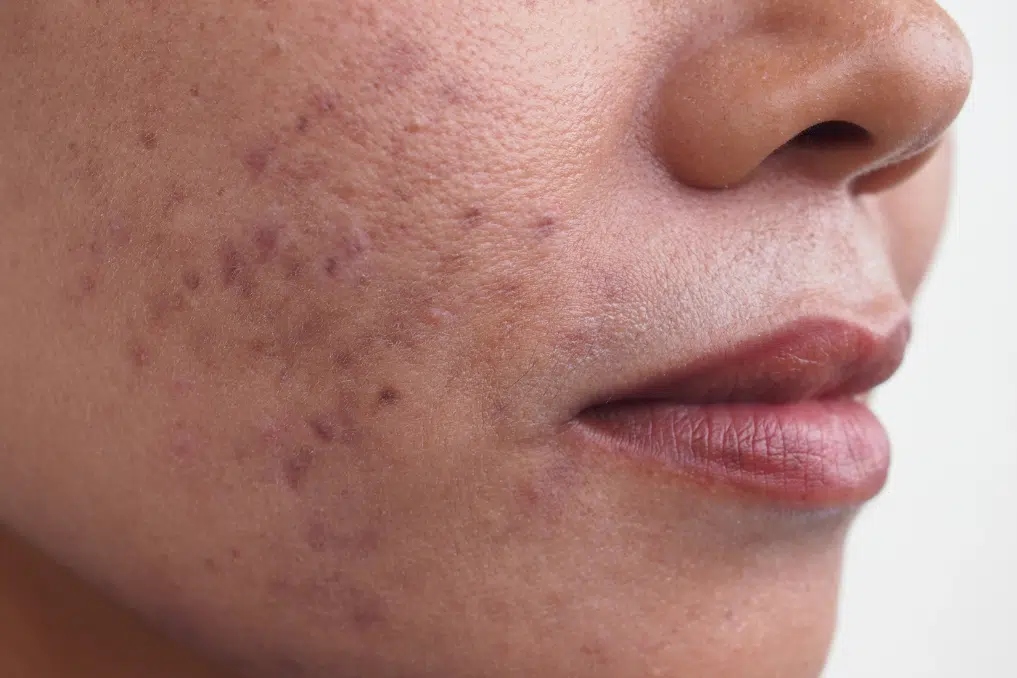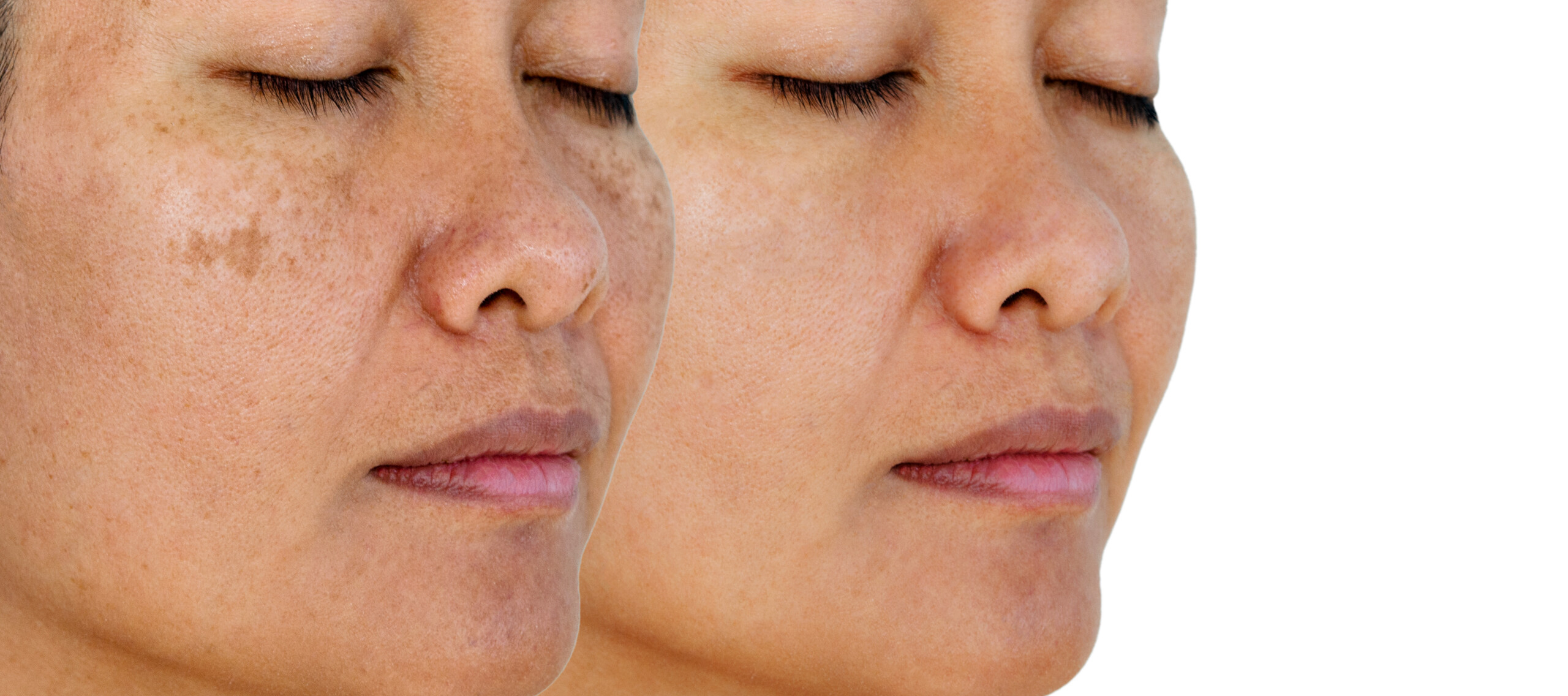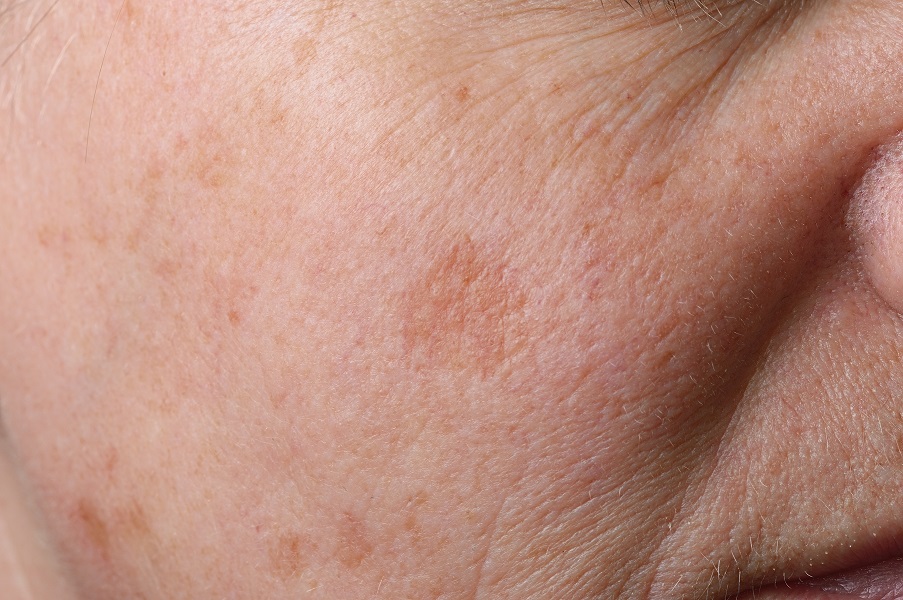Treating Hyperpigmentation - Say Goodbye To Dark Spots
Discover effective treating hyperpigmentation options and achieve a clearer, brighter complexion.
Author:Karan EmeryReviewer:James PierceMar 01, 2024817 Shares22K Views

Hyperpigmentation refers to the darkening of certain areas of the skin caused by an excess production of melanin, the pigment responsible for skin color. While it is not harmful, hyperpigmentation can be a source of self-consciousness for many individuals. So, is treating hyperpigmentationpossible?
Yes, of course. Fortunately, there are various options for treating hyperpigmentation available to help reduce the appearance of hyperpigmentation and achieve a more even skin tone.
Hyperpigmentation, characterized by the darkening of certain areas of the skin due to an excess production of melanin, can be a source of concern for many individuals. Fortunately, there are several effective treatment options available to help lighten hyperpigmented areas and achieve a more even skin tone.
Face Acids
Skin acids, often known as face acids, function by removing the outermost layer of skin cells from the skin. New skin cells grow from the skin to replace the old ones whenever you exfoliate. Your skin tone becomes more balanced and smoother overall as a result of the procedure.
Many facial acids can be purchased over-the-counter at drug and beauty stores. Popular choices include of: alpha hydroxy acids, including vitamin C (ascorbic acid) and glycolic, lactic, citric, malic, or tartaric acid, as well as azelaic, kojic, and salicylic acids
Chemical Peels
Chemical peels are another popular treatment option for hyperpigmentation. During a chemical peel, a solution containing exfoliating agents such as glycolic acid, salicylic acid, or lactic acid is applied to the skin. This solution causes the top layer of skin to peel off, revealing smoother, more evenly pigmented skin underneath. Chemical peels can be customized to suit individual skin types and concerns, making them a versatile option for addressing hyperpigmentation.
Microdermabrasion
Microdermabrasion is a non-invasive exfoliation technique that uses a handheld device to gently remove the outer layer of dead skin cells. By sloughing off this layer of dull, pigmented skin, microdermabrasion can help reduce the appearance of hyperpigmentation and reveal brighter, more youthful-looking skin. This treatment also stimulates collagen production, which can improve skin texture and tone over time.
Laser Therapy
Laser therapy is a highly effective treatment for hyperpigmentation that works by targeting melanin in the skin. Different types of lasers, such as fractional lasers and intense pulsed light (IPL) therapy, can be used to break up excess pigment and stimulate collagen production.
Laser treatments are highly customizable and can be tailored to address specific types of hyperpigmentation, including sunspots, melasma, and post-inflammatory hyperpigmentation. While laser therapy may require multiple sessions for optimal results, many individuals experience significant improvement in the appearance of their skin after treatment.
Microneedling
Microneedling, also known as collagen induction therapy, is a minimally invasive procedure that involves the use of a device with fine needles to create tiny punctures in the skin. These micro-injuries stimulate the body's natural healing response, triggering the production of collagen and elastin.
In addition to improving skin texture and reducing the appearance of fine lines and wrinkles, microneedling can also help address hyperpigmentation by promoting the growth of new, evenly pigmented skin cells. This treatment is safe for all skin types and can be used on various areas of the body, including the face, neck, and décolletage.
Cosmetic Procedures
In cases of severe or stubborn hyperpigmentation, cosmetic procedures such as dermabrasion, cryotherapy, or skin grafting may be recommended by a dermatologist. These procedures are typically performed in-office and involve more aggressive techniques for removing or replacing pigmented skin cells.
While cosmetic procedures may require a longer recovery time and carry a higher risk of complications, they can provide dramatic results for individuals with persistent hyperpigmentation.
Home Remedies For Hyperpigmentation
Using natural therapies, hyperpigmented areas can potentially be lighter. Nevertheless, no extensive human research has been conducted to verify the efficacy of any of these treatments.
A person should always test a new therapy or natural remedy on a tiny patch of skin before using it on the entire body. If the product irritates the skin, the person should stop using it. An analysis from 2018, the following herbal remedies could aid in lessening the appearance of hyperpigmentation:
Aloe Vera
Aloe vera contains a chemical called aloesin, which may diminish hyperpigmentation. Aloesin functions by preventing the skin's melanin from being produced.
It is said that pregnancy-related melasma may be relieved by taking aloe vera capsules. The plant's aloe vera gel can be applied topically to the skin on a daily basis. Nevertheless, no studies have directly connected aloe vera to decreased hyperpigmentation; so, scientists are still unsure about this method's efficacy.
Licorice
Extracts from licorice may make hyperpigmentation lighter. Glabridin, an extract from licorice, may have anti-inflammatory, antioxidant, and skin-whitening properties. Glabridin-containing creams can be applied to hyperpigmented areas.
Green Tea
Extracts from green tea may help with hyperpigmentation. Green tea's potential as an antioxidant and an anti-inflammatory has long been the subject of research.
Green tea extracts may lessen sunburn and help with melasma, according to a reliable source. Before scientists can properly determine whether or not green tea can alleviate symptoms, more research is required.
Treating Hyperpigmentation - FAQs
What Causes Hyperpigmentation?
Hyperpigmentation can be caused by various factors such as sun exposure, hormonal changes, inflammation, and skin injuries.
How Can I Treat Hyperpigmentation At Home?
You can try topical treatments containing ingredients like hydroquinone, retinoids, and vitamin C, as well as natural remedies like lemon juice or aloe vera.
What Professional Treatments Are Available For Hyperpigmentation?
Professional treatments for hyperpigmentation include chemical peels, microdermabrasion, laser therapy, and microneedling, which are performed by dermatologists or skincare professionals.
Is Hyperpigmentation Permanent?
In many cases, hyperpigmentation can fade over time with proper treatment and sun protection. However, some types of hyperpigmentation, such as melasma, may be more stubborn and require ongoing management.
What Is The Fastest Way To Cure Hyperpigmentation?
- Skin acids.
- Microdermabrasion.
- IPL or Intense pulsed-light therapy.
- Dermabrasion.
- Skin lightening creams.
- Retinoids.
- Laser peel.
- Chemical peel.
How Long Does It Take For Hyperpigmentation To Fade?
Fading can take some time after the source of the dark patches or spots is identified and removed. Spots that are a few shades darker than your skin tone will typically go away in six to twelve months. But it may take years for the color to fade if it is deeply ingrained in your skin.
Can Hyperpigmentation Be Removed?
Retinoids and over-the-counter (OTC) skin acids may help treat hyperpigmentation. Additionally, a dermatologist might carry out operations that might lessen its appearance. In medicine, darker skin patches caused by an overabundance of melanin production are referred to as hyperpigmentation.
Which Treatment Is Best For Hyperpigmentation?
- Kojic acid.
- Tranexamic acid.
- Cysteamine.
- Hydroquinone.
- Retinoids.
- Azelaic acid.
- Cosmeceuticals.
Can Sun Exposure Worsen Hyperpigmentation?
Yes, sun exposure can exacerbate hyperpigmentation and cause dark spots to become more pronounced. It is essential to wear sunscreen daily and avoid prolonged sun exposure to prevent further pigmentation.
Conclusion
Hyperpigmentation is a common skin concern that can affect individuals of all ages and skin types. While it may not be harmful, it can have a significant impact on self-esteem and confidence.
Fortunately, there are numerous options for treating hyperpigmentation available to help reduce the appearance of hyperpigmentation and achieve a more even skin tone. By understanding the causes of hyperpigmentation and taking preventive measures, individuals can maintain healthy, radiant skin for years to come.

Karan Emery
Author

James Pierce
Reviewer
Latest Articles
Popular Articles

